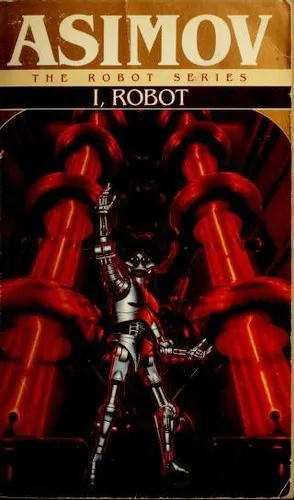
This list is curated from 2 mentions and sorted by most mentioned, then by date of most recent mention. The more a book is mentioned, the more likely it's recommended and a favorite!

This list is curated from 2 mentions and sorted by most mentioned, then by date of most recent mention. The more a book is mentioned, the more likely it's recommended and a favorite!
This was certainly an interesting experience, given that the short stories in this book were written at about 1940-1950, but the events the in book take place at about 2070. (i.e. right now in 2012 we are almost exactly half way there) The book contains 9 short stories, from which the ones I would most recommend are Reason and Evidence. What strikes me as most interesting is the nature of predictions in the book. Some predictions are too pessimistic and some are too optimistic, but in funny ways. Here are examples: - The robots in 2070 are described to be heavy, metalic, and have diaphragms. More likely, we'd now think that robots at that time will be made of super light-weight carbon fibers, and they certainly won't have diaphragms when we can just use speakers? - Most interestingly, in charge of the hardcore theory of robots are ... mathematicians. In fact, the positronic brains are seen to yield behavior based on solutions of differential equations. These days, we would most likely not think of including (pure) mathematicians in robotics, and we rarely ever think of algorithms in AI/Machine Learning in terms of differential equations. (wait, should we? ) - One story mentions that the protagonists recorded a video, and that he had to to get it developed. Interesting that it was not obvious that this limitation would not be overcome by 2070, and that we wouldn't be using film. - Even though some of the above contain severely pessimistic views of the world, Isaac imagines us to have hyperatomic drives in 2070, that allow for easy interstellar travel. It is strange to think that we can conquer space, but still need to "develop" a video. Anyway, overall I liked the stories. Many of them essentially come down to an almost detective-like story, where there is something wrong with the robots, and the protagonist has to figure out how the observed behavior has come about from the 3 laws and logical inferences. In general I like the idea that sufficiently advanced robots will become so complicated that we will lose the ability to fully interpret their behavior. There will simply be too many moving parts, and what we observe in terms of the behavior will only ever be the tip of the iceberg. The underlying, perfectly deterministic and individually understandable complexity will simply collapse all together into one term, and we will call it personality. I look forward to these times, at some point around 2070 (sounds reasonable to me). 4/5View all 2 sources